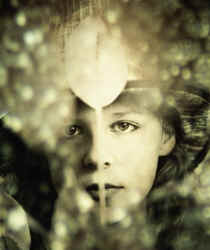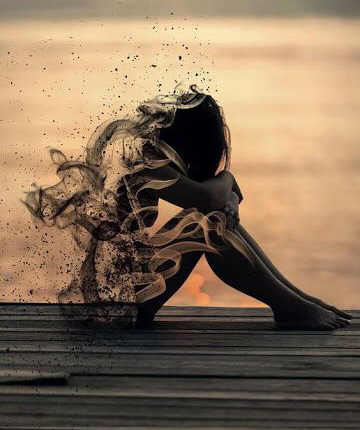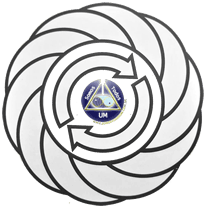The Dance of Life – Part 2 – The dualism and its consequences

Autor Sônia Imenes
Assunto STUM WORLDAtualizado em 01/09/2005 17:33:34
Translated by Nancy Juozapavicius - [email protected]
Final revision by Françoise Killick - [email protected]
Let’s go back to the origins:
Our civilized culture has developed thanks to science and technology, and has also been supported by a certain vision of the world which valued certain of its aspects in detriment of others.
This vision of the world was based on dualism: matter x spirit; body x mind; science x religion.
Science developed its method of investigation and all the phenomena which couldn’t be observed, quantified, deduced through the logical, analytical method of reasoning (Descartes) was excluded from the natural phenomena and considered as super-natural, related to the domain of faith, and beyond cognition. Descartes, however, didn’t deny God, or the existence of soul. God was seen as an external creator, monarchical, ruling everything from Above. Unreachable, Unrecognizable. According to the dominant vision of the Catholicism.
The domain of science opposes the domains of religion. The physical phenomena were not considered, per se, divine: “There is no purpose, life, or spirituality in matter”.
Descartes, considered as the founder of modern philosophy, searched a method which would allow him to obtain absolute truth, a science based on fundamental principles, as mathematics, which would not need demonstrations. The key for the understanding of the universe, according to him, was on its mathematical structure. The Cartesian method is analytical, based on decomposing thoughts and problems and disposing them in a logical order.
As a result of this method, our knowledge, investigation and study process was fragmented. Academic subjects, which are becoming more and more specialized, are fragmented. Science was reduced: all complex reality phenomena can be understood if reduced to their components. The world started to be seen as a machine assembled in kit: “I don’t see any difference between the machines made by the artisans and the several bodies that only nature can create”.
Nature started to be seen as a mechanical system while science started to acquire, more and more, a role of manipulator to serve the development of a new order, giving grounds for capital to dominate.
From old times, science has always aimed at wisdom, at understanding natural order and searching life in harmony with this order. Since the XVII century, with the contribution of Francis Bacon – the first one to formulate a clear theory of the empirics in science – this goal was radically transformed. Bacon is still quoted today as an inspiring source of studies – as, for example, in the invitation for the graduation of the students of the “Escola Paulista de Medicina” (Paulista Medical School) in 1998 - probably because people don’t know about the compromising involvement this man had with the witch-hunt processes while serving as an attorney for King James I, and because his works are not read directly. In those works we find a very violent and frankly vile language. According to Bacon, nature needs to be ‘chased on its ways’, ‘forced to serve us’, and transformed in our ‘slave’. It must be ‘put under coercion’ and the goal of the scientist must be to ‘torture nature to extract its secrets”. It was founded on this spirit that our western culture was developed, taking to tragic environmental degenerations, where modern man lives.
As for the scientific investigation method, there is an actual obsession concerning measurement and quantification. The essential properties of the bodies were considered to be the shapes, quantities and measurable movement. Other properties as sound, colour, smell and flavor were considered subjective mental projections and were excluded front the domain of science.
Psychiatrist R.D.Laing pointed out: “vision, sound, taste, touch and smell were lost, and with them also the aesthetical and ethical sensibility, the values, the quality, the shape; all the feelings, reason, intentions, soul, conscience, spirit. The experience, as such, was expelled from the domain of scientific speech”.
This way of seeing the world was disseminated by all the other areas of knowledge, and only the facts that were considered in this way got the attention of the scientists and scholars.
In regard to the duality mind-body, man was also reduced to a machine, disease seen as a malfunction of the biological mechanisms, and those, reduced to their smallest parts. An example is the development of specializations in Medicine, both for professional purposes and for the fields of study and research which are developed under the point of view of cellular and molecular biology. Little is known about the integrative functions processed in the human organism. For example, Medicine has some knowledge about the nerves circuits, but it can’t explain how the brain cells operate together to form the integrative action in the nervous system. Another example is in the area of embryogenesis, still considered a mystery. There is no explanation on how the cells start to divide themselves in different functions, forming the different tissues and organs of the body.
The concepts about health and healing are barely discussed, when they are not completely neglected at school. This issue gets still more complicated when you take into account the huge influence the pharmaceutical industry has over the medical system.
Before Descartes, the majority of the therapists treated their patients in the context of their social and spiritual environments. In the last three centuries, by concentrating on the body machine, the doctors neglected the psychological, social and environmental aspects of the disease.









